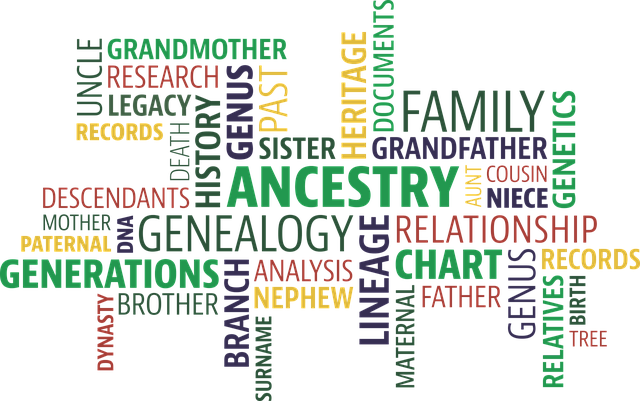Few people dabble in genealogy. The reason? Because once they begin, they find that it pulls them into an exciting world of history, family, and undreamed-of connections to the past—and past events. How we got here, and the account of what led us here can become an immensely passionate area of study. Fortunately, studying genealogy today is easier than ever, given the wide range of online resources available that weren’t available a mere couple of decades ago.
This guide will explore how to get started with genealogy and examine some of the best resources available for researching and documenting family history. If you’re considering this pastime, you may find that it’s just the sort of personally rewarding experience you’re searching for.
Getting Started with Genealogy
Researching family history is a fun pastime for adults of any age and children and teens interested in their ancestry and history in general. It’s also a relatively inexpensive hobby. We’ll touch on paid resource subscriptions in subsequent sections, but those are entirely optional, albeit incredibly helpful.
A World of Discovery
One of the most exciting aspects of genealogical research is the mystery associated with tracing your ancestry. No matter how much you think you know about your ancestors, prepare for new discoveries. If you know little, then each research session could deepen your knowledge of your ancestors’ pasts, travels, occupations, and how they lived their days on this earth. Few genealogists find a smooth research path, but the bumps in the road and the obstacles to information, are all part of the discovery process you have to look forward to.
The Educational Benefits of Genealogy
Genealogy teaches people to become excellent researchers. Navigating online databases, library collections, and traditional research tools is an education in itself. But genealogy research can and invariably leads to further study. For instance, if you discover that your ancestor entered North America via a Canadian port as opposed to Ellis Island as you previously thought, it is likely to lead you down an exciting new path into 18th or 19th century regional studies.
You can deepen your understanding of your ancestors’ lives by studying the places where they lived, the food they ate, and the music they listened to. As you learn, you will enrich your life and the lives of other current family members with whom you share your newly acquired research. It’s not uncommon for genealogy to ‘rub off’ on other family members. You may be able to work together to uncover your extensive family history.
Steps to Getting Started with Genealogy
Although different family history enthusiasts may take their own singular approach, the following steps are generally helpful for getting started with genealogy. Feel free to adapt them to your process as you choose
Start with a Plan
It’s a good idea to begin your research with a bit of general planning. For instance, you’ll need to decide how you want to record your discoveries. Will you use online tools or traditional tools like binders and photo protectors? Many people use both. However, you’ll definitely want to record the information you find. There are many resources that amateur genealogists can use, from cloud-based storage sites to write-in genealogical guides.
Your plan should also include your starting place. How do you want to begin your research? Are you researching your family name? Do you want to start with one parent or another’s genealogy? If you are adopted and don’t know very much about your family history, you might actually want to begin with a DNA test. Rest assured, your plan is sure to evolve as you go; the nature of your discoveries will necessitate revisions to your plan. However, you can begin virtually anywhere you like. It’s your research. Dive in anywhere you choose!
Preliminary Exploration
You might begin your research by first talking to various family members. However, be prepared for conflicting name spellings and even downright inaccuracies. It’s not uncommon for family members to mistakenly believe that they’re a particular nationality only to discover through hard DNA evidence that they’re actually something entirely different.
As you record the names and stories that your relatives pass along to you, take some time to get to know some online resources that will help you with your research as it progresses. We’ll include a section listing them, but be sure to set aside time to investigate what each different resource has to offer.
Some resources like Cyndi’s List are incredibly extensive. You might spend weeks perusing Cyndi’s renowned list of genealogical resources and still barely scratch the surface. There, you’ll find links to historic ships’ logs, census records, family cookbooks, church records, etc. You might also want to subscribe to a helpful genealogical research database like Ancestry. However, be sure to learn about these tools so you know where to begin your research.
Research & Organize
When you’re ready to begin your research, you’ll definitely need your organizational tools in place so that you can record your findings as you research. There’s nothing more frustrating than finding something exciting but forgetting to document where you found it. You’ll see! Just landing on a useful tidbit may take a myriad of research twists and turns. You always want to easily revisit those places—online or in books—where you found key information.
Genealogy research is a web-like endeavor. As you research one individual, you’ll come across many other relatives that you can research as well. You might even come across distant relatives on different continents who, like you, are engaged in genealogical research too! You are likely to make many interesting connections that advance your research and deepen your understanding of your family’s past—and how it contributed to your present.
Useful Links and Resources
We’ve gathered some generally useful links and resources. Keep in mind that there are literally thousands upon thousands of online and print resources available. For instance, you may narrow your research to a country or city of origin and rely on resources associated with it. However, the following are great resources to begin your exploration, and many will provide you with a wide range of family history information.
Cyndi’s List
As mentioned, Cyndi’s List is an internationally renowned resource for amateur and academic genealogists. The list currently boasts more than 330,000 links to genealogical resources organized into categories such as newspapers, adoptions, births, and baptisms, obituaries, ports of entry, census records, etc.
Ancestry
Ancestry.com is one of the world’s leading subscription databases for genealogy research. In fact, you’ve probably already heard about it and seen the commercials. The company reports having more than 10,000 billion online records. It also acquired a helpful genealogical resource called RootsWeb, a thriving genealogical community filled with forums and resources of its own.
U.S. Citizenship and Immigration Services
You can use this resource to find family members who entered the United States as immigrants at one time and became citizens. Because the nature of record-keeping has changed periodically over time, you may find it challenging to research, for instance, ancestors who arrived before 1924 as the records will appear differently than those after. In any case, this is a terrific resource to begin your family history exploration.
National Archives
At some point, most U.S.-based genealogical searches wind up at the National Archives. Here, you’ll find U.S. Census records as well as related services. For instance, you can order copies of census records that list your ancestors. The National Archives also features many helpful resources for genealogists such as family history forms and charts, links to research tutorials, military service records, naturalization records, and more.
FamilySearch
If you’re not ready to subscribe to a service like Ancestry.com, check out FamilySearch, which is one of the world’s largest free genealogy databases. The site offers a terrific array of online tools such as indexing capabilities and family tree storage. Upon visiting, you can set up your free online account.
WikiTree
WikiTree is a collaborative genealogical source that’s growing in popularity. As a social networking genealogical site, WikiTree allows for individual family tree building and collaborative genealogical information sharing.
Wrap-Up
Genealogy is a personalized exploration of history that you can lead. Many people enjoy this form of research because they can perform it at their own pace, share it with other family members and friends, and learn more about their ancestor and history in general than they ever imagined. If you’re like many people who take up this pastime, you’ll stick with it and may even find it to be a lifelong pursuit. Good luck, and be sure to refer to this guide for help getting started.



